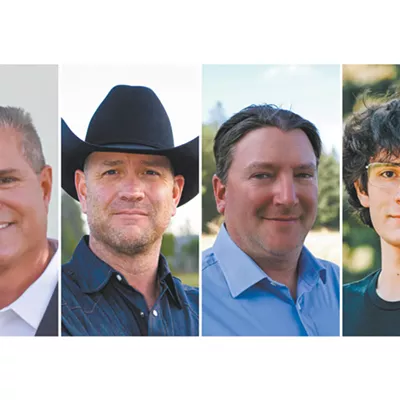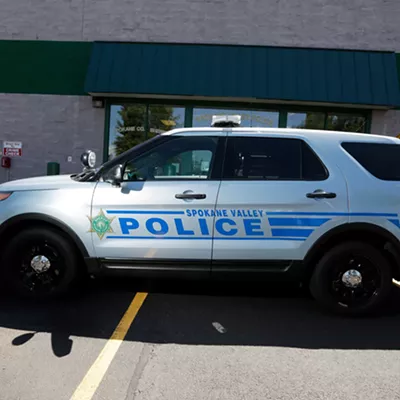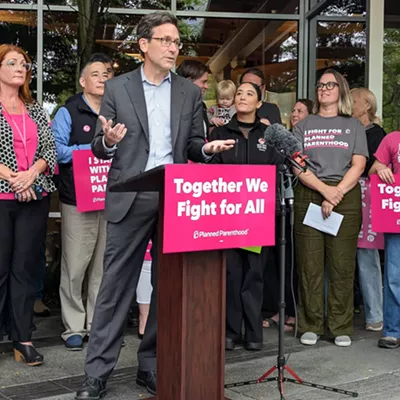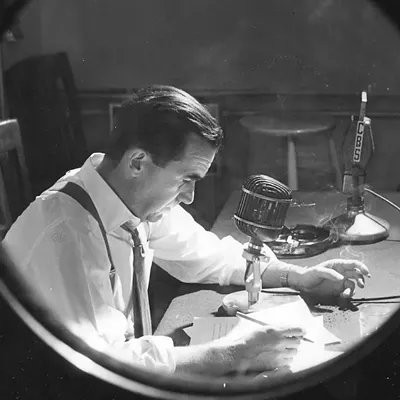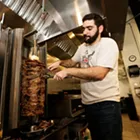Imagery. Through it we create our reality. From one image, we draw associations with related images.
When I saw the pepper-spray imagery from the University of California-Davis protest last month, I’m sorry, but my mind’s eye conjured up Jews being led off by Waffen SS. Why? Because those SS soldiers and the U.C. Davis cop both had the same detached look, just doing their jobs. The UC Davis cop (who makes a tidy $110,000 a year, it has been revealed) showed no emotion nor reticence. Both had seemingly dehumanized their victims. The Davis cop even paused in front of several victims and fired a second blast of pepper spray just to make sure. Some of those kids were coughing up blood days later.
My mind’s eye then shifts its gaze to the Spokane Police
Department. I see Otto Zehm, and I’m reminded of reports of many other
such incidents that have, over the years, been swept under the table.
What’s reality and what’s distortion?
We do need to take care to reflect on our imagination. It isn’t always reliable. After all, Madison Avenue, for decades, successfully used deceiving imagery to sell cigarettes. Political parties are using deceptive imagery to smear opponents and win votes even now.
Walter Lippmann, in his classic, Public Opinion, argued that imagery can lead to illusion — that we are often manipulated by imagery’s obvious messages. This distortion he termed “pseudo-reality.”
But in the case of what’s happening to the Occupy demonstrators around the country? The images are all the same and just keep coming. Pepper spray in Davis; the 84-year-old woman in Seattle (also pepper spray); the Iraq veteran now in a coma (he was hit in the head by a tear gas canister); another Iraq veteran denouncing the NYPD for using such force against unarmed people (“There is no honor in this” he shouted).
Still, we must be careful not to fall into the pseudo-reality trap. What do we know, really, beyond just what the images convey?
Here in Spokane, alas, the facts not only confirm the imagery but also suggest that we have seen just the tip of our melting iceberg. We know that the SPD made every attempt to cover up the facts about Zehm’s death. The whitewash of an internal investigation was published just before the Feds filed charges, which led to the trial and conviction of officer Karl Thompson. Then came that childish display of Semper Fi solidarity in the courtroom. The judge should have found in contempt every one of those officers who participated in the salute.
These images seem typical: same culture, same problems.
How things have changed since 9/11. Every police
department in America benefited from the images of New York’s “finest”
heading into those burning buildings. Today, those images have been
replaced by scenes of handcuffed kids getting pepper-sprayed, by lines
of cops in riot gear and, here in Spokane, by cover-ups and trials.
Culture matters, and as former Spokane County Prosecutor Donald Brockett recently wrote, the culture embraced by the police is both military and militaristic. Notably, however, not all military veterans believe that military experience generally translates into good police work.
When I lived in Cheney, my next-door neighbor was a retired sergeant major who had, as they say, been around. He had served in the Army from late in World War II through Vietnam. He was a ranger, paratrooper and sniper, with even a stint or two in the military police.
About this time, the Cheney city fathers got all in a twitter over their new chief. After all, he had military experience. Just what we need — that’s what the city fathers said. My neighbor, however, was dismayed.
The very last person this town should have as police chief is someone with military experience, I recall him saying. And of all the different kinds of military background, they went and got the very, very worst, he continued. They got a guy who used to run sentry operations. If you run a sentry operation, you only have two choices: Do I turn the Dobermans loose, or don’t I?
I asked him what would be a better kind of military experience: Get an old-time MP, he said, some guy who has actually had to go into a bar and break up a fight, someone who has had to deal with real people.
Here was a man who had killed at distances of up to three-quarters of a mile, telling me he’d take away the officers’ guns and dress them all in blue blazers. That’s what he recommended. No guns and blue blazers. And why?
Because cops in places like Cheney are performing community services, he said, keeping order, giving out some tickets, maybe settling a domestic dispute — they aren’t crime fighters, even though most like to think they are.
OK, so Spokane isn’t Cheney. Still, the argument remains valid. Police work isn’t a job for Rambos or Mel Gibsons or “frat” boys who want to circle the wagons, defiantly throwing disgusting temper tantrums whenever one of their own is called to account.
Oh, and real soldiers? They live with the knowledge that every one of their actions will be judged swiftly and harshly by military justice. There is no guild to protect them.






